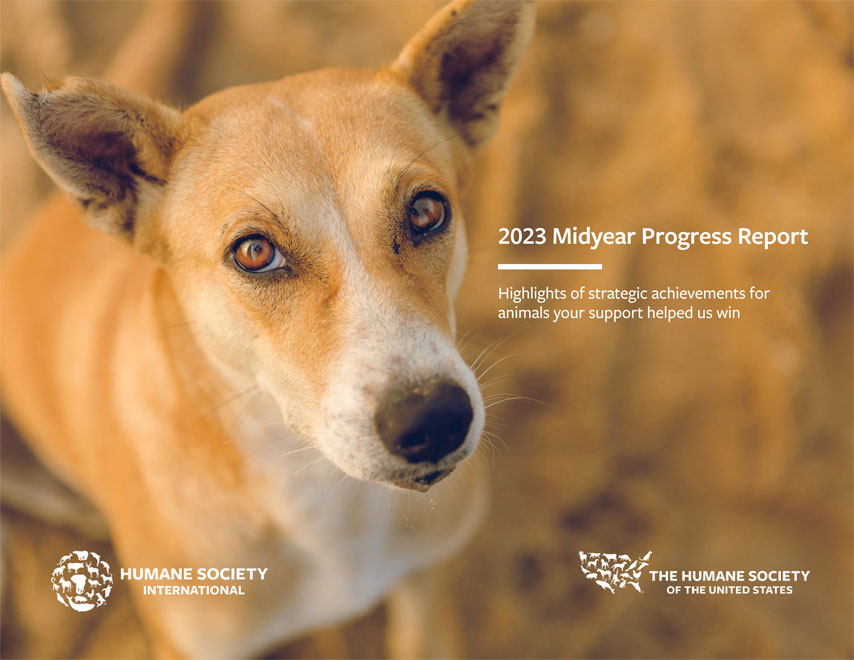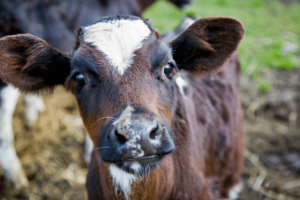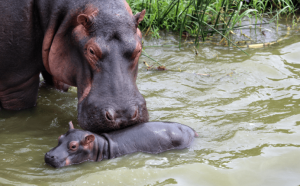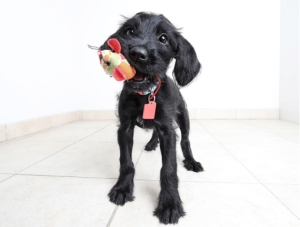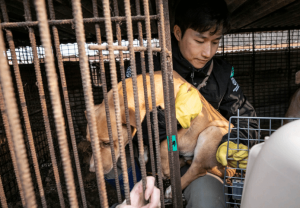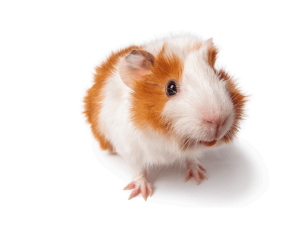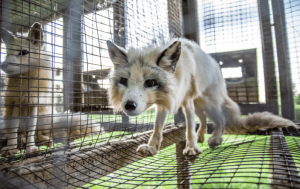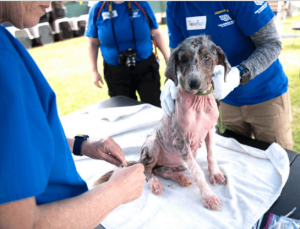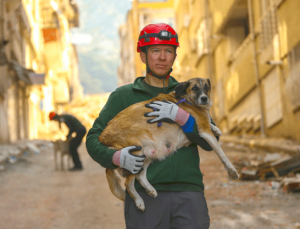Project Longhurst: an update from Humane Society International
Chris Broome – Chartered Financial Planner
It has been just over 9 months since we launched our corporate charitable giving programme, ‘Project Longhurst’, which aims to support organisations involved in humanitarian, animal welfare, environmental and financial education causes.
Here is the latest news from our Animal Welfare partner, Humane Society International (HSI).
This extract from their mid-year progress report highlights their success stories for 2023.
Our Mission
The joint mission of the Humane Society of the United States and Humane Society International is to create a better world for all animals.
The Humane Society family of organizations works around the globe to protect companion animals and wildlife, improve farm animal welfare, promote animal-free testing methods and reform industries that harm animals. Through our rescue, response and sanctuary work, as well as our other direct services, we help thousands of animals in need.
We work to end the cruelest practices toward animals, care for animals in crisis and build a stronger animal protection movement worldwide.
Ending the extreme confinement of farm animals
INDUSTRIAL ANIMAL AGRICULTURE is one of the biggest causes of animal suffering—most of the billions of animals raised for meat, dairy and eggs around the world suffer horribly on factory farms, where they’re subjected to extreme confinement in crates, cages and pens so small they can barely move or turn around.
We’re working globally to end the intensive confinement of egg-laying hens in cages, calves in pens and mother pigs in crates.
PROGRESS
We emerged victorious in our landmark Supreme Court defense of Proposition 12, the nation’s strongest farm animal protection law. Proposition 12, which was approved by 63% of voters in California, has already freed millions of animals from cages as producers come into compliance.
New Jersey lawmakers passed a bill to ban the crates used to cruelly confine mother pigs and calves raised for veal.
Wendy’s restaurant chain met its goal of 100% group-housed pigs in its North American supply chain.
Malaysian hypermarket Mydin committed to ending the sale of caged eggs in all its 66 locations by 2030, and in Thailand, we secured cage-free commitments from three new companies, representing significant progress in the cage-free movement in that country.
The OECD (Organisation for Economic Cooperation and Development) made history by incorporating animal welfare into its guidelines for best business practices, which puts pressure on multinational companies to adopt stronger protections for animals across all industries that use them.
We successfully defended our 2022 Arizona cage-free egg regulation, which bans cages for egg-laying hens in the state and mandates that all eggs produced and sold in the state be cage-free by 2025.
Reducing trophy hunting
EVERY YEAR, HUNDREDS of thousands of wild animals are killed by hunters for trophies: heads, hides or pelts, and even whole animals to stuff, skin or hang on a wall. Trophy hunting is not only extremely cruel, but it also can exacerbate the population decline of imperiled species and disrupt ecosystems. Killing wild animals for fun and bragging rights is morally indefensible and ecologically unsustainable.
We’re working to raise public awareness and end corporate support of this despicable industry by campaigning for, and winning, stronger protections for
wild animals.
PROGRESS
The New York state legislature passed a bill to end inhumane wildlife killing contests, in which participants compete to kill the most, the heaviest and the smallest animals for cash and prizes. In 2018 and 2020, we released undercover investigations that exposed the brutality of wildlife killing contests in the state.
In Belgium, the Council of Ministers approved a legislative proposal to ban the import of hunting trophies of endangered animal species – a landmark decision that will protect many species regularly killed for sport, including the hippopotamus, Southern white rhinoceros, African savannah elephant, lion, polar bear and argali sheep.
In Washington state, we helped defeat a bill that would have taken wolves off the state’s endangered species list. The HSUS vocally opposed the bill through direct lobbying and written comments and generated significant grassroots opposition from our supporters.
In Oregon, we led a successful coalition of more than 20 local and national organizations to defeat six bills that would have repealed, weakened or circumvented Measure 18, a citizen initiative that banned hunting cougars with hounds.
On World Hippo Day, we launched legal action to protect hippos under the Endangered Species Act.
Because our supporters and other animal lovers around the world spoke out against Iceland’s cruel commercial whaling industry, the government announced there will be no commercial whaling this year on animal welfare grounds.
Ending puppy mills
PUPPY MILLS ARE INHUMANE, high-volume dog breeding facilities that churn out puppies for profit. Poor sanitation, over-breeding and a lack of preventive veterinary care mean that puppy mill puppies frequently suffer from a variety of health issues. Mother dogs may spend their entire lives in cramped cages and be killed when they are deemed unproductive.
Our strategy to end this cruel industry includes helping to pass bans on retail puppy sales and publicly exposing inhumane mass breeders.
PROGRESS
Oregon lawmakers voted to break the puppy mill-pet store pipeline by banning the sale of puppies in pet stores, becoming the seventh state to do so with our support.
We helped pass 22 more local Humane Pet Store ordinances, bringing the total to 468 across the United States. These bans on retail puppy sales are greatly reducing the market for puppy mill sellers.
The city council in Plantation, Florida, voted to deny a local Petland store the permit it needed to stay in business after we proved that the store was violating a local ordinance against selling puppies in pet stores.
We published our 11th annual Horrible Hundred report, our yearly roll call of puppy mills where dogs are suffering. At least 24 puppy mills that have appeared in our reports closed in 2022.
We joined forces with a Texas law firm to represent consumers who unknowingly purchased sick puppies from two Texas Petland stores. Staff had assured the buyers that the dogs came from top-tier breeders.
Ending the dog meat trade
ALTHOUGH MOST PEOPLE ACROSS ASIA don’t eat dog meat, this brutal trade continues -namely in South Korea, China, Viet Nam and Indonesia. Dogs are either bred and raised in brutal conditions on farms, snatched from the streets, stolen from backyards or bought from owners.
We’re fighting for these dogs by helping pass local bans on the production, sale and consumption of dog meat, raising public awareness of the suffering inherent in the trade, and working for a ban in South Korea, which will hasten the end of the trade in other countries.
PROGRESS
We realized our longtime goal of having a bill introduced in the South Korean National Assembly that seeks to end the dog meat industry once and for all. HSI/Korea has been working behind the scenes with Korean lawmakers for years to win a legislative ban.
Our photo exhibit, Beyond Prejudice, featuring award-winning photographer Sophie Gamand’s portraits of dogs rescued by HSI from the dog meat trade, garnered extensive media coverage and broke expected attendance records. Many attendees showed their support for our End Dog Meat campaign on social media.
We helped close our 18th dog meat farm in South Korea, removing 200 dogs and bringing them to North America to begin the rehabilitation process. National Assembly member Insoon Nam and members of her staff also joined our team on the farm to witness the conditions, a mark of growing support for ending the dog meat industry in South Korea. To date, we have rescued more than 2,700 dogs from the dog meat trade in South Korea.
Indonesia’s capital city of Jakarta banned the dog and cat meat trade, becoming the 21st jurisdiction in the country to do so. The move came in response to an intensive campaign by Dog Meat Free Indonesia, of which HSI is a founding member.
Ending animal testing
ACROSS THE WORLD, animals are still suffering and dying needlessly in laboratory safety tests, including for cosmetic products, for which reliable non-animal tests are already available. Terrified rats, rabbits, guinea pigs and mice have substances forced down their throats, dripped into their eyes or smeared on their skin before they are killed.
We’re working to end unnecessary animal tests and through our #BeCrueltyFree campaign, end cosmetics animal testing altogether.
PROGRESS
Illinois became the first state to ban the use of dogs and cats in toxicity testing.
Oregon lawmakers voted to ban animal testing of cosmetics.
The European Commission validated more than 1.2 million signatures on our Citizens’ Initiative to end animal testing and research across the bloc.
After years of HSI campaigning, Brazil introduced a partial ban on animal testing for cosmetics, the first step toward our goal of a federal law that also bans the sale of animal-tested cosmetics.
Maryland became the first state to require that labs that use animals in testing contribute financially toward the research and development of non-animal testing methods.
Save Ralph, our stop-motion short film that highlights the cruelty of animal testing, reached over 15.3 million views on our YouTube channel after it was included on the nominee shortlist for an Academy Award in the Short Animated Film category.
We finally won our decade-long campaign to ban animal testing of cosmetics in Canada, which also introduced far-reaching provisions to phase-out the use of animals in chemical toxicity testing.
Ending the fur trade
ON FUR FARMS, undomesticated wild animals spend their entire lives in cramped cages, unable to engage in natural behaviors, before being inhumanely gassed or electrocuted. The stress from living in a tiny cage causes severe problems, such as self-mutilation and infected wounds, and the spread of infectious diseases originating on fur farms is a major animal welfare and public health concern. Animals trapped in the wild for their fur suffer horribly in leghold traps, sometimes for days, before being brutally killed.
We’re fighting for these animals by working to end the fur industry for good.
PROGRESS
Dillards, the last major U.S. department store to sell fur, removed fur items from its website after our supporters sent more than 79,000 emails and made nearly 5,000 calls to company headquarters.
The luxury clothing brand, Herno, and legendary British department store Harvey Nichols, both announced they will stop selling fur after we released the appalling findings of an HSI/UK investigation into Chinese fur farms.
Five major fashion brands in Romania—Ioana Ciolacu, Museum Concept, REDU, Katerini and OCTAVIA CHIRU – pledged to go fur-free, and became the first companies in that country to join the global Fur Free Retailer program.
1.5 million EU citizens signed our Fur Free Europe European Citizens’ Initiative, which urges a bloc-wide ban on fur farming.
Lexington, Massachusetts, joined five other municipalities in that state in banning the retail sale of new fur products. Following Cambridge’s lead, Lexington not only banned the in-store sale of fur products, but online sales, too.
Hudson’s Bay Company, the parent company of Saks Fifth Avenue and a longtime Canadian fur trading business, announced a fur-free policy. The HSUS has a long history of working with Saks Fifth Avenue on the fur issue.
Helping animals in need
In Türkiye, following the devastating earthquakes, we sent our team of experienced disaster responders to work with local veterinarians and conduct search and rescue for lost, injured and trapped animals. We remained onsite for weeks, distributing food, water and veterinary supplies, assisting local animal groups, helping set up field veterinary hospitals and providing emergency financial aid for rescue efforts.
In Mississippi, our Animal Rescue Team deployed to support local law enforcement agencies with an alleged neglect case involving 176 cats living in filth and misery. We removed all the cats, ensured they received much-needed medical care and placed them with shelter and rescue partners to be adopted.
In Ukraine, our efforts to help animals and people caring for animals entered their second year. We continue to provide relief and supplies for animals and people caring for animals in Ukraine, and fund rescue groups and shelters in border countries that have taken in evacuated and abandoned animals.
In Chile, we provided help and critical supplies to animal rehabilitation centers and veterinary hospitals caring for wild, companion and farm animals affected by wildfires that scorched nearly 1 million acres.
In North Carolina, our rescue responders assisted with a large-scale alleged neglect and cruelty case involving a backyard puppy breeder. We rescued 114 puppies and dogs, among them, pregnant females who gave birth to almost three dozen more puppies in the days following. We brought all the dogs to our care and rehabilitation center for medical treatment and evaluation in preparation for eventual adoption by loving families.
In Puerto Rico, we played a leading role in the rescue and rehoming of 296 animals who had been living in filth and unsuitable enclosures for years at a derelict former zoo. We ultimately brought 23 of the animals to our sanctuary at Black Beauty Ranch, while the others went to sanctuaries elsewhere in the U.S.
Find out more
To read more about Project Longhurst, please visit our dedicated website page.
For more information about HSI, visit their website.

